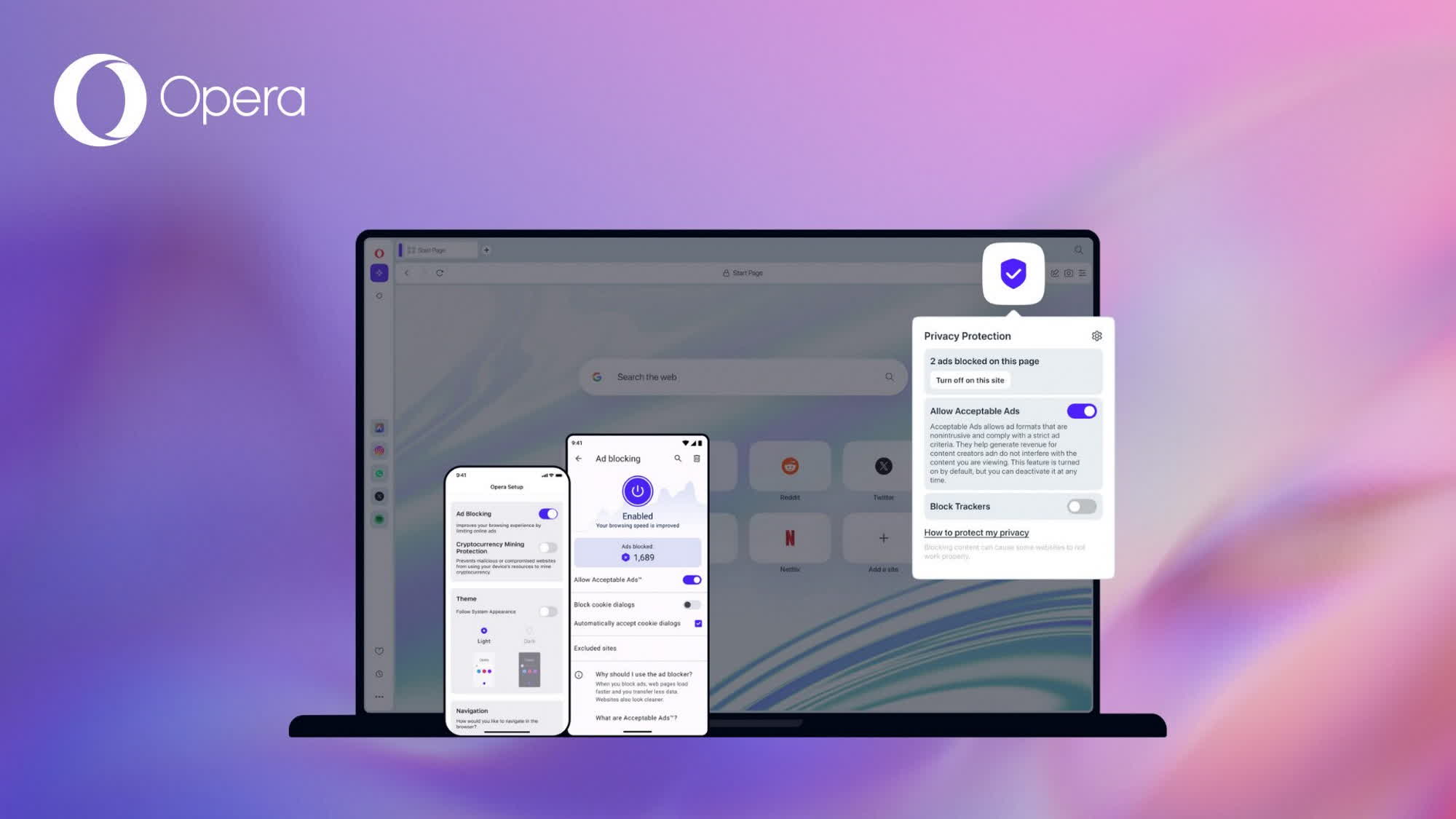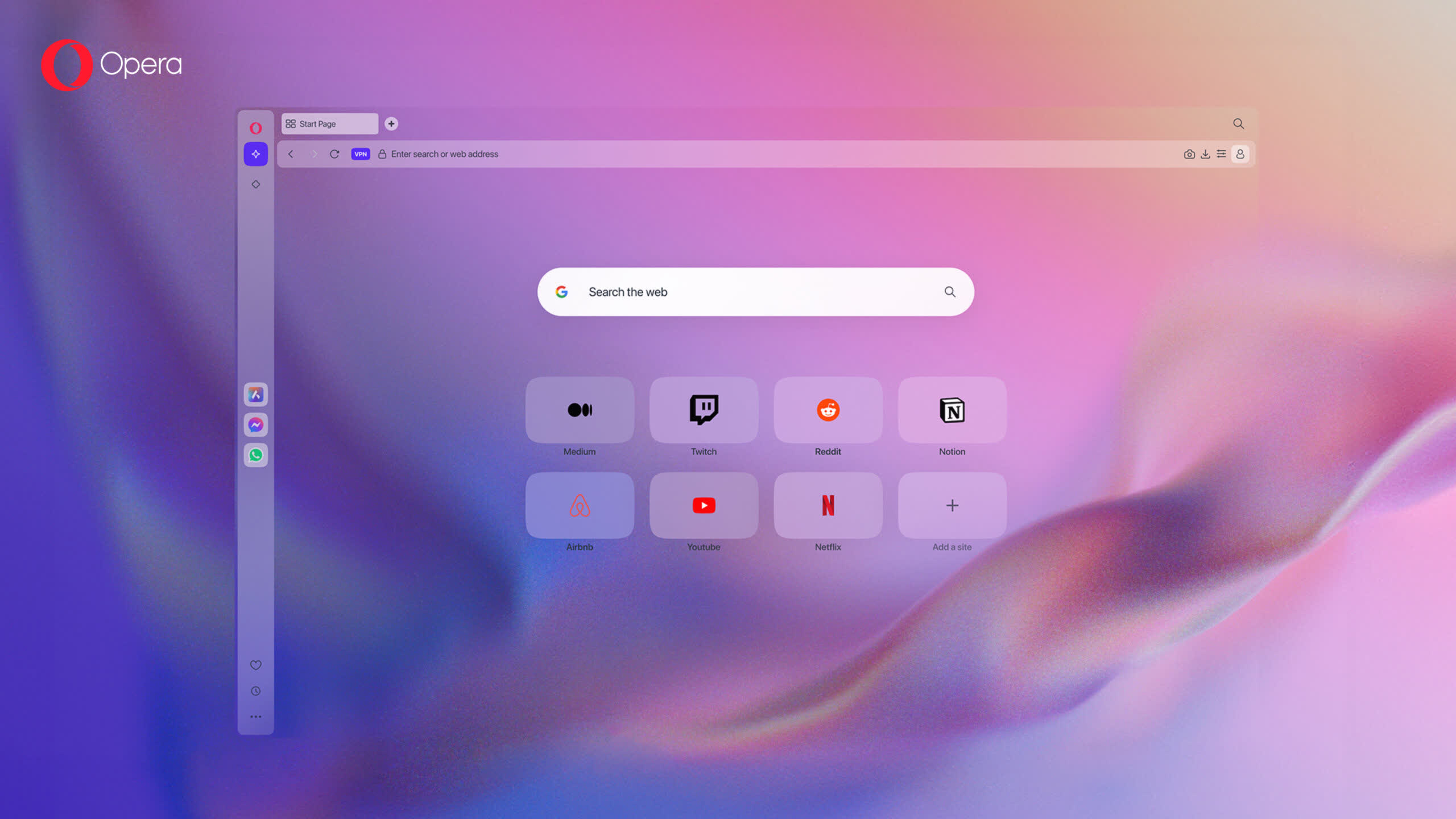Chrome-less: Google is enforcing a significant shift for Chrome extension developers by making the newer Manifest V3 framework mandatory. However, many other Chromium-based browsers are choosing not to follow suit, allowing them to maintain enhanced ad-blocking capabilities compared to Chrome.
Google Chrome risks becoming an inferior browser, at least when it comes to blocking invasive ads. Google replaced Manifest V2 with Manifest V3, forcing extension developers to adopt a less effective technology in exchange for a claimed increase in overall browser security. However, Opera Software recently confirmed that it will not follow suit and will retain Manifest V2 support in its Chromium-based browser.
The newly launched Opera One R2, which the company touts as the "best Opera browser" to date, is primarily geared toward enhancing support for generative AI algorithms. The Opera One rebranding, introduced in 2023, is intended as a "new" Opera browser, purpose-built around AI services from the ground up.
Opera One R2 introduces new AI-driven features including an enhanced command line for interacting with its AI component, Aria, as well as image generation and other advanced capabilities. Opera also debuted a refreshed design aimed at showcasing the future look of web browsers, featuring dynamic themes, animated backgrounds, and "browser sounds." While sound effects in browsers were around back in the Windows 98 era, AI integration promises a more immersive experience.
As for ad blockers and legacy extensions, Opera One R2 will continue supporting Manifest V2 add-ons, despite Google's removal of the technology from Chromium. Opera has also offered a native ad-blocking feature since 2016, which requires no additional components and can reportedly speed up web page loading by up to 90 percent.

A few days before releasing Opera One R2, Opera announced its commitment to continue supporting Manifest V2 extensions, regardless of changes in other browsers. Although updates to the Chromium layout engine typically impact Opera, the company has affirmed its ability to make independent decisions and customize the shared codebase.
This decision ensures that Opera users can keep using extensions like uBlock Origin without interruption, avoiding the need to switch to more limited alternatives like uBlock Origin Lite. Alternatively, users can opt for Opera's built-in ad-blocking feature.
Other browsers that will continue supporting uBlock Origin include Brave and Mozilla Firefox, the latter recommended by uBlock developers as currently offering the best ad-blocking experience on the market.
